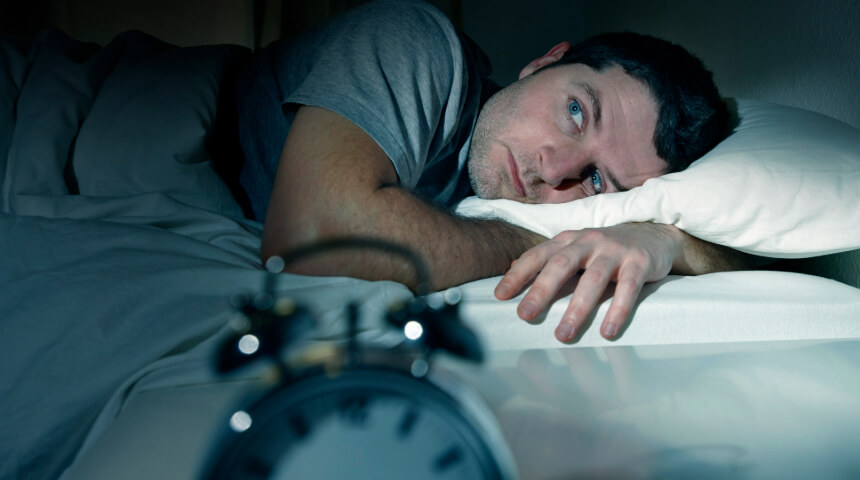It’s hard to know where to begin if you struggle to fall asleep. Roughly a third of all adults battle insomnia at some point in their lives, and the answer to a better night’s rest may be as simple as changing a few everyday habits.
Before you seek the help of a sleep medicine specialist, here are some strategies you can try to return to restorative sleep.
Start a Sleep Log
Before you make any changes, begin a sleep log to track what is and isn’t working. Record what time you go to bed and awaken, as well as what time you wake up at night, if that’s an issue. The more information you track, the better. You may find it helpful to also track what time you finished dinner as well as if you exercised during the day.
A sleep log is typically the first step recommended by sleep doctors. They will suggest that you go to bed and wake up at the same time consistently. Routine is key, and helping the body fall asleep is easier if it’s at the same time nightly.
Awakening at the same time every morning helps. Setting an alarm and rising, even if you're in a deep sleep, will help you in the future. This may be unpleasant for a few days but will pay dividends in the long run.
Get Help for Mental Health Disorders
If you battle anxiety, depression or PTSD, you are not alone. These common conditions all affect your sleep. A doctor can prescribe medication, but most will recommend beginning mental health counseling as a first step. Lack of sleep exacerbates mental health disorders, so addressing the issue is key.
If you have experienced major trauma, help from a therapist or psychologist is best. Practices such as cognitive behavioral therapy can regulate your nervous system, helping you to rest and feel safe again, allowing for proper sleep.
Take A Look at Your Medications
Many people don’t realize that their medications act as stimulants, keeping them up at night. This can be maddening, especially if you’re more symptomatic and take medication at night. Medications prescribed for the following are worth another look.
- Depression
- Asthma
- Blood pressure
- Allergies
Ask your prescribing doctor if an alternative medication or lower dose may work. With your doctor’s OK, you can experiment by taking the medicine earlier in the day until you find a time that allows for a full night of sleep.
Herbal medications may also play a role. These are not regulated by the FDA and can contain more ingredients than you realize. Talk to your primary doctor if you suspect any herbs or herbal supplements are affecting your sleep.
Move Your Body
Physical and even social activity are two of the best ways to ensure a good night’s sleep. Ideally, you’re getting 30 minutes of physical exercise, five days a week. If your week currently doesn’t contain any exercise, it’s OK to do what you can and build up the amount of time spent moving. Every bit helps, whether it’s taking the stairs at the parking garage or parking in the farthest space at the grocery store to get more steps in.
Limit Naps
Naps can help you recover from missed sleep, but napping for too long each day can prevent you from falling and staying asleep. If you must nap, limit it to no more than 15 to 20 minutes.
Monitor Caffeine Intake
Caffeine is one of the biggest obstacles between you and sleep. Stop consuming caffeine by 5 pm. If this still keeps you awake, try stopping an hour earlier and walk your way back to a time that works. If you’re more sensitive to caffeine, you might have stop drinking it by 11 am or noon.
Stop Eating Late at Night
Avoid meals and snacking late at night. Your body can’t get the full rest it needs if it’s busy digesting food. It’s recommended that you finish eating between 2 and 4 hours before bedtime.
If you can, have your largest meals at breakfast or lunch, and opt for a smaller, easier-to-digest dinner. A lighter dinner, such as salad or soup, will satiate you without keeping you up. Avoid fried foods at dinner as they are hard to digest. Pay attention to foods such as tomatoes and tomato products that can cause acid reflux and affect sleep.
Skip Sweets
Avoid chocolate before bed. Chocolate is a stimulant and also can induce acid reflux.
Limit alcohol
The occasional single glass of wine with dinner is OK, but any more than that, especially right before bed, could compromise your sleep. Alcohol can help you fall asleep, but you will metabolize it in about 3 hours, turning into sugar, which will then wake you up.
Stop Smoking Before Bedtime
Don’t smoke before bedtime as smoking exacerbates insomnia. If you’re a smoker, try to have your last cigarette or vape at least 2 hours before bed.
Create Ideal Sleep Environment
Avoid too much stimulation in the bedroom. Turn off the TV or music, and put away your smartphone, when you’re trying to sleep. Your brain needs to rest at night, and any stimulation can disrupt the sleep cycle. If you must have sounds, choose a noise machine, an audio book or something similarly soothing and relatively monotone.
Light also plays a role in your sleep. You want your sleep space to be pitch black, which may necessitate wearing a sleep mask or hanging blackout curtains.
Create Before-Bed Routine
The hour before bed is ideally devoted to relaxing activities. Take a warm bath, practice a bit of light yoga, read or listen to soft, soothing music.
If you try all these measures and are still having issues, it’s time to see a sleep specialist.
Choose to Stay in Touch
Sign up to receive the latest health news and trends, wellness & prevention tips, and much more from Orlando Health.
Sign Up










